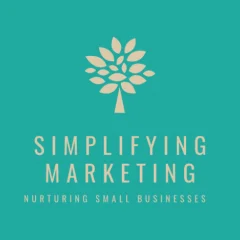Optimize your sales and marketing efforts to drive revenue and reach your target audiences effectively.
In the dynamic world of business, where communication is key, jargon often plays a significant role in the realms of sales and marketing. This specialized language, filled with buzzwords and industry-specific terms, serves several purposes. From enhancing communication within teams to establishing credibility with clients, the use of sales and marketing jargon is deeply ingrained in the culture of modern business.
Understanding the Landscape
Defining Sales and Marketing Jargon
Sales and marketing jargon encompasses a wide array of terms, phrases, and acronyms unique to the field. These expressions often arise from the need to describe complex concepts succinctly or to convey insider knowledge within the industry. From “lead nurturing” to “ROI” (Return on Investment) and “B2B” (Business to Business), this language forms a crucial part of the lexicon for professionals in sales and marketing roles.
The Evolution of Jargon
Like any language, sales and marketing jargon evolves over time. New terms emerge to describe emerging trends, technologies, and strategies, while others fade into obscurity as practices change. For instance, phrases like “growth hacking” and “inbound marketing” have gained prominence in recent years, reflecting shifts in consumer behavior and technological advancements.
The Functionality of Jargon
Facilitating Communication
One of the primary functions of sales and marketing jargon is to facilitate effective communication within teams. In fast-paced environments where clarity is paramount, using shorthand terminology can streamline discussions and ensure that everyone is on the same page. Instead of lengthy explanations, professionals can rely on shared terminology to convey complex ideas efficiently.
Establishing Credibility
In addition to internal communication, jargon also plays a role in establishing credibility with external stakeholders, including clients, partners, and investors. Using industry-specific language demonstrates expertise and insider knowledge, which can instill confidence in the capabilities of a sales or marketing team. Clients are more likely to trust professionals who speak their language and understand the intricacies of their industry.
Creating a Sense of Inclusivity
Moreover, the use of jargon can create a sense of inclusivity among professionals within the same field. Shared terminology fosters a sense of camaraderie and belonging, as individuals bond over their mutual understanding of industry-specific concepts. This shared language can strengthen professional relationships and facilitate collaboration, driving innovation and problem-solving within the organization.
The Pitfalls of Jargon
Exclusionary Language
While sales and marketing jargon can enhance communication within the industry, it also has its drawbacks. One of the most significant pitfalls is the potential for exclusionary language that alienates those outside the field. Clients or stakeholders who are not familiar with industry-specific terms may feel confused or marginalized, leading to misunderstandings and miscommunication.
Lack of Clarity
Furthermore, excessive use of jargon can hinder rather than enhance communication, especially when dealing with non-specialists. Complex terminology may obscure rather than clarify ideas, making it difficult for clients or team members to grasp key concepts. Effective communication requires striking a balance between using industry-specific language and ensuring that messages are clear and accessible to all parties involved.
Striking a Balance
Tailoring Communication
To navigate the complexities of sales and marketing jargon, professionals must be mindful of their audience and adapt their communication style accordingly. When interacting with clients or stakeholders outside the industry, it may be necessary to simplify language and avoid excessive use of jargon. Clear and concise communication should always take precedence over impressing others with insider terminology.
Educating Stakeholders
At the same time, there is value in educating clients and stakeholders about key industry concepts and terminology. By demystifying jargon and explaining its relevance in the context of their business, professionals can foster greater understanding and collaboration. Transparent communication builds trust and strengthens relationships, paving the way for successful partnerships and mutual growt
Navigate FAQs about sales and marketing to drive revenue and reach target audiences effectively.
Sales and Marketing FAQ
- Sales and Marketing
- What does Targeted marketing mean?
Targeted marketing, also known as niche marketing, involves tailoring marketing efforts to specific segments of the population that are most likely to be interested in a product or service. It focuses on reaching and engaging with the most relevant audience to maximize effectiveness and ROI.
- What does Value proposition mean?
A value proposition is a promise of value to be delivered to customers. It articulates the benefits and unique selling points of a product or service, explaining why it’s better or different from competitors and why customers should choose it. It answers the question, “What’s in it for me?”
- What does Reach out mean?
To reach out means to make contact or communicate with someone, typically for the purpose of offering assistance, support, collaboration, or engagement. In business, reaching out often involves initiating communication with prospects, customers, partners, or other stakeholders.
- What does Social media marketing mean?
Social media marketing is a form of digital marketing that utilizes social media platforms and networks to promote products, services, or content. It involves creating and sharing posts, videos, ads, and other content to engage and attract a targeted audience on social platforms.
- What does Strategic branding mean?
Strategic branding refers to the deliberate and purposeful process of creating, positioning, and managing a brand to achieve specific business objectives. It involves defining the brand’s identity, values, personality, and promise to differentiate it from competitors and resonate with customers.
- What does Customer-centric approach mean?
A customer-centric approach is a business strategy that prioritizes delivering exceptional value and experiences to customers. It involves understanding customer needs, preferences, and behaviors, and tailoring products, services, and processes accordingly.
- What does Data-driven marketing mean?
Data-driven marketing is an approach to marketing that uses data analysis and insights to make strategic decisions. It involves collecting and analyzing data from various sources to understand customer behavior, preferences, and trends, optimizing marketing efforts accordingly.
- What does Engage mean?
To engage means to attract and hold the attention or interest of someone. In a business context, engaging typically refers to interacting with customers or stakeholders in a way that fosters meaningful connections, encourages participation, and builds relationships.
- What does Growth hacking mean?
Growth hacking is a marketing strategy focused on rapid experimentation across marketing channels and product development to identify the most effective ways to grow a business. It often involves unconventional tactics and creative thinking to achieve rapid growth.
- What does Influencer marketing mean?
Influencer marketing is a form of marketing that involves collaborating with influential individuals or personalities to promote a product, service, or brand to their audience. It leverages the influencer’s credibility and reach to expand brand awareness and drive sales.
- What does Lead generation mean?
Lead generation is the process of attracting and capturing interest in a product or service for the purpose of developing a sales pipeline. It involves identifying and nurturing potential customers, often through marketing campaigns, content, or lead capture forms.
- What does Market penetration mean?
Market penetration is a business strategy aimed at increasing sales of existing products or services in existing markets. It involves capturing a larger share of the market by attracting new customers or convincing existing customers to buy more or more frequently.
- What does Market segmentation mean?
Market segmentation is the process of dividing a broad target market into smaller, more manageable segments based on shared characteristics, such as demographics, psychographics, behavior, or needs. It helps businesses tailor their marketing efforts to specific audience segments.
- What does Marketing automation mean?
Marketing automation refers to the use of software tools and platforms to automate repetitive marketing tasks, such as email marketing, social media posting, lead nurturing, and campaign management. It helps businesses streamline processes and increase efficiency.
- What does Content marketing mean?
Content marketing is a strategic marketing approach focused on creating and distributing valuable, relevant, and consistent content to attract and retain a clearly defined audience, ultimately driving profitable customer action.
- What does Omni-channel marketing mean?
Omni-channel marketing is a multi-channel approach that provides customers with a seamless and integrated shopping experience across various channels, such as online, mobile, brick-and-mortar stores, social media, and more. It focuses on delivering consistent messaging and service.
- What does Conversion optimization mean?
Conversion optimization, also known as conversion rate optimization (CRO), is the process of improving your website or landing page to increase the percentage of visitors who take a desired action, such as making a purchase or filling out a form.
- What does Personalized marketing mean?
Personalized marketing, also known as one-to-one marketing, involves tailoring marketing messages and offers to individual customers based on their preferences, behavior, purchase history, and other data. It aims to enhance customer experience and drive engagement and conversions.
- What does Conversion rate mean?
Conversion rate refers to the percentage of website visitors who complete a desired goal out of the total number of visitors. This goal could be anything from making a purchase, subscribing to a newsletter, or filling out a contact form.
- What does Persuasive messaging mean?
Persuasive messaging refers to communication that is designed to influence attitudes, beliefs, or behaviors of the audience. It involves crafting messages that resonate with the target audience’s needs, desires, and motivations, ultimately persuading them to take a desired action.
- What does Customer acquisition mean?
Customer acquisition is the process of attracting and converting new customers or clients to your business. It involves various marketing strategies and tactics aimed at reaching and persuading potential customers to purchase your products or services.
- What does Pipeline mean?
In a business context, a pipeline refers to the flow of potential customers or opportunities through the sales process. It represents the various stages a prospect goes through, from initial contact to closing the sale, and is used to track and manage the sales pipeline effectively.
- What does Customer engagement mean?
Customer engagement refers to the interactions and relationships between a customer and a brand. It involves creating meaningful connections with customers through various touchpoints, such as social media, email marketing, and personalized experiences.
- What does Customer retention mean?
Customer retention is the ability of a company to keep its existing customers over a specified period. It involves building loyalty and satisfaction among customers through positive experiences, effective communication, and ongoing value delivery.
- What does Customer-centric mean?
Customer-centric means putting the customer at the center of everything a business does. It involves prioritizing customer needs, preferences, and satisfaction above all else, shaping products, services, and strategies to meet and exceed customer expectations.
- What does Brand equity mean?
Brand equity refers to the commercial value derived from consumer perception of the brand name of a particular product or service, rather than from the product or service itself. It represents the value of the brand in the marketplace.
- What does Brand storytelling mean?
Brand storytelling is the art of using a narrative to connect your brand with customers, engaging them on an emotional level. It involves crafting a compelling story about your brand’s origins, values, or mission to resonate with your target audience.
- What does Competitive analysis mean?
Competitive analysis involves assessing and understanding the strengths and weaknesses of competitors in a market, as well as identifying opportunities and threats they present. It helps businesses develop effective strategies to gain a competitive edge.
- What does Content is king mean?
“Content is king” is a phrase popularized by Bill Gates, emphasizing the importance of high-quality, relevant content in driving engagement, building brand authority, and attracting and retaining customers in today’s digital landscape.


